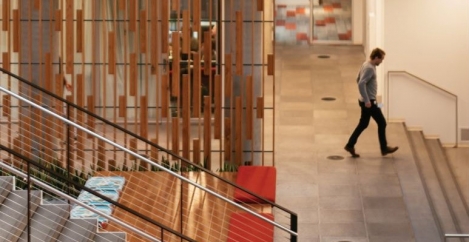October 24, 2022
Offices remain largely unchanged in wake of pandemic
 Most businesses are failing to invest in collaborative offices that could encourage people to spend more time in them and take advantage of new work cultures, a report claims. More than four in five UK workers (83 percent) surveyed by YouGov on behalf of Microsoft Surface find themselves still in the same office environment as before the pandemic. The majority of those surveyed believe that office work is better suited to both socialising with colleagues (57 percent) and strengthening relationships with colleagues (65 percent) compared to remote work.
Most businesses are failing to invest in collaborative offices that could encourage people to spend more time in them and take advantage of new work cultures, a report claims. More than four in five UK workers (83 percent) surveyed by YouGov on behalf of Microsoft Surface find themselves still in the same office environment as before the pandemic. The majority of those surveyed believe that office work is better suited to both socialising with colleagues (57 percent) and strengthening relationships with colleagues (65 percent) compared to remote work.
However, the report’s authors claim that staff are stuck in uncollaborative work patterns when they do venture into the office – the majority (71 percent) report ‘doing emails’ every time they go in. Under a third (31 percent) of office workers say that their organisation has invested in technology to improve collaboration in the past year.
Perhaps as a result, half (50 percent) of employees surveyed only go into the office when they’ve been told that they have to.
The Microsoft Surface report, The re-imagined office: not a re-design but a re-define, draws on the views of thousands of UK employees and more than 500 IT decision makers to highlight the importance for organisations to re-imagine their offices for the ‘hybrid road’ ahead. The report claims to share insights across three dimensions – collaboration, productivity and employee engagement.
In the report, UK employees share their top three frustrations with office work – feeling like they achieve less than when working remotely (as cited by 36 percent of respondents); the cost and length of time commuting (32 percent); and reduced time spent with loved ones (25 percent).
When asked to imagine a new office workplace, it’s the ‘basics’ they long for. Strong Wi-Fi was the most commonly cited request (49 percent), followed by good air conditioning with temperature control (47 percent), and flexible work hours (46 percent) and good transport links (43 percent).















